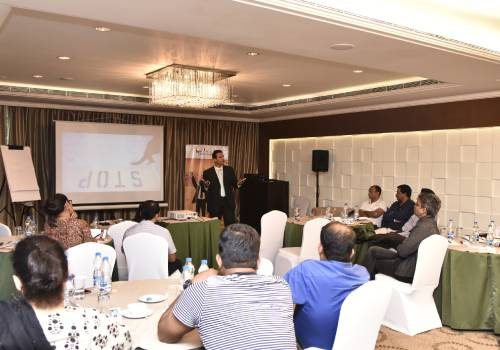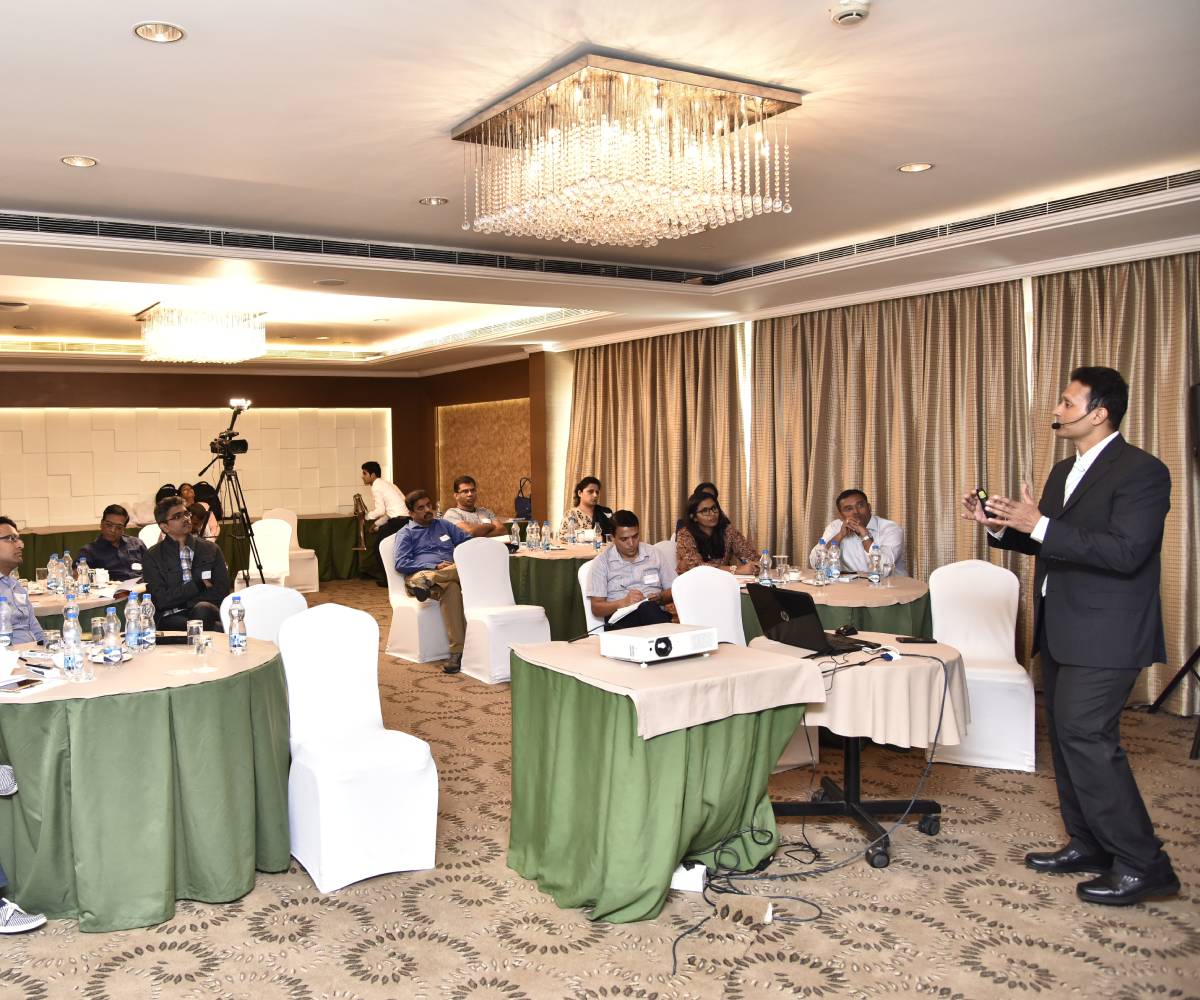Transforming Workplace Dynamics Through Emotional Centering
In today’s fast-paced corporate world, one of India’s biggest real estate conglomerates recognized the need to equip its cross-functional teams with tools to manage stress, improve focus, and foster collaboration. To address this, they partnered with us to deliver an Emotional Centering program. The initiative comprised an in-person workshop followed by micro-coaching sessions, aimed at embedding emotional intelligence into everyday workplace interactions.
The program was structured to help participants develop self-awareness and emotional resilience. Through practical exercises, guided reflections, and collaborative discussions, employees learned to identify their triggers, regulate emotions effectively, and create a more harmonious work environment. The overwhelmingly positive feedback highlighted the program’s transformative impact on individual behaviours and team dynamics.

The Approach: A Holistic Framework
- Interactive Workshop: A highly engaging session featuring group discussions and real-life scenarios to build emotional intelligence skills.
- Micro-Coaching Sessions: Group-focused coaching to address specific challenges and reinforce learning collectively.
- Practical Techniques: Tools like mindfulness, anchoring techniques, and self-reflection exercises to regulate emotions.
- Customized Content: Scenarios and examples designed to resonate with the unique workplace culture of a real estate conglomerate.
Key Learnings and Outcomes
The program provided profound insights into the transformative power of emotional centering in the workplace. Employees reported notable improvements in their ability to manage conflicts, stay calm under pressure, and foster empathetic connections with colleagues. As emotional regulation became a daily habit, participants were able to significantly reduce workplace stress, contributing to a more harmonious work environment.
The impact was particularly evident in team dynamics and leadership effectiveness. Teams experienced enhanced collaboration, with individuals becoming more self-aware and communicative. Managers found it easier to resolve interpersonal challenges, leading to a positive shift in overall morale and productivity across the organization. This shift contributed to a more cohesive and high-performing work culture.


